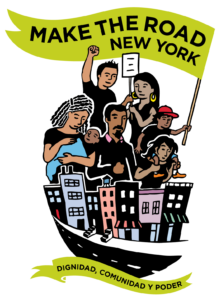On July 16, 2021, in a different case challenging the legality of DACA led by the state of Texas, Texas v. U.S., found that the 2012 DACA policy is unlawful. As a result, processing of first-time DACA applications stopped. That court, however, stayed—or temporarily paused—its decision for current DACA recipients, which meant that those who had DACA or whose DACA had lapsed less than a year before could apply for renewal of their DACA and work authorization. The federal government appealed the court’s decision to the Fifth Circuit Court of Appeals to challenge its determination that DACA is unlawful.
While the Texas case was being heard on appeal, the Biden administration issued a DACA Rule in August 2022. When it went into effect on October 31, 2022, the new DACA Rule rescinded and replaced the 2012 DACA memo. All current grants of DACA and advance parole issued under the 2012 DACA memo remain valid under the new Rule. Applications to renew DACA are now governed by the new DACA Rule. Advance parole remains available for DACA holders. The DACA Rule’s new fee structure is now in place. The DACA application has two fees associated with it: $410 for the Employment Authorization Document (“EAD”) and $85 for the form I-821D. Note that whereas USCIS previously accepted a “bundled” fee of $495, it is now requiring that the two fees of $410 and $85 be submitted as two separate payments. In addition, the DACA Rule clarifies that expunged convictions, juvenile delinquency adjudications, and convictions under state laws for immigration-related offenses are not considered disqualifying convictions when applying for DACA.
On October 5, 2022, the Fifth Circuit Court of Appeals issued its decision on the legality of the 2012 DACA policy. As anticipated, the Fifth Circuit agreed with the district court in Texas that DACA is unlawful on both procedural and substantive grounds—in other words, the 2012 DACA memo was unlawfully published without required notice-and-comment procedures, and the 2012 DACA memo is in violation of the Immigration and Nationality Act. The Fifth Circuit also agreed with the district court that the state of Texas has “standing,” or the ability to bring its lawsuit against DACA, because it found that emergency Medicaid costs and public education costs for DACA recipients to be “injuries” suffered by the state. Finally, the Fifth Circuit sent the case back to the district court to consider the legality of the August 2022 DACA Rule, which the Biden administration had finalized through a formal rulemaking process.
On October 14, 2022, the Texas district court halted implementation of the August 2022 DACA Rule, while the court considered its legality. However, the court once again stayed its order to allow current DACA recipients and those whose DACA had lapsed for less than a year to continue to renew their grants of DACA and work authorization while the case continues. But first-time applications are still not being processed. The next step is for the Texas district court to consider the legality of the DACA Rule and issue its decision.
For updates on the Texas litigation, please visit the case timeline page on the Mexican American Legal Defense and Education Fund’s (“MALDEF”) website here: Texas v United States: A Timeline of The Fight to Protect DACA | MALDEF.



